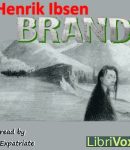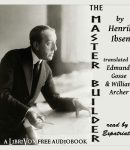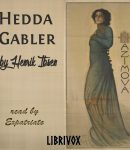
Brand
Inflamed by what he saw as his Norwegian homeland’s shocking betrayal of Denmark after the Prussian invasion of Danish territory, Ibsen wrote “Brand” as an indictment of human complacency and rigidity of mind. Composing this “dramatic poem” from his self-imposed exile in Italy, Ibsen had long agonized over the stodgy provincialism of his countrymen, but the abandonment of Denmark took on the dimensions in his imagination of a human tragedy far surpassing his own personal experiences. Brand is a priest who refuses to compromise, at the cost of great suffering to others, and who lives by unrealizable ideals. The play revolves around a cast of remarkable characters, such as Gerd the mad peasant girl with delusions of God; Ejnar the complacent artist; and Agnes the devoted lover. Ibsen’s breakthrough work, “Brand” could be seen as the true beginning of Ibsen’s career, and although (or because?) it was at the time the most fiercely-debated work of literature in Scandinavian history, it always remained one of the playwright’s favorite productions. The true genius of the work lies in the judicious balance of its indictment of philistine complacency and its warning against intolerant zealotry. The ambiguous character of Brand himself, principled and heroic while flawed, was seen by Ibsen as representing himself at his best. “Give Nothing, or give All,” said Brand, over and over, with stirring consequences.. ( Expatriate) [chương_files]


